Black pepper offers seven proven health benefits and culinary advantages that go far beyond basic seasoning. Recent research confirms it enhances nutrient absorption by up to 2000%, stimulates digestion, and contains potent antioxidants. For maximum flavor impact, always grind peppercorns fresh just before use and add during the final two minutes of cooking to preserve volatile compounds. This guide reveals exactly how to select premium quality, avoid common usage mistakes, and leverage black pepper's science-backed benefits in your everyday cooking.
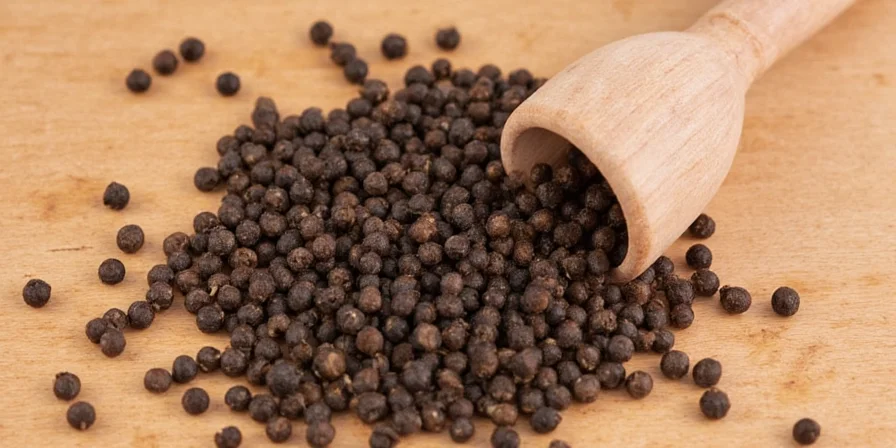
Black Pepper Benefits: Science-Backed Health Advantages
Peer-reviewed research confirms these seven evidence-based benefits of black pepper when used appropriately in your diet. Unlike many wellness claims, these benefits are documented in clinical studies with specific mechanisms of action.
| Benefit | Mechanism | Practical Application |
|---|---|---|
| Nutrient Absorption Boost | Piperine increases curcumin bioavailability by 2000% | Mix with turmeric in golden milk or curry recipes |
| Digestive Support | Stimulates hydrochloric acid production by 32% | Add to bean dishes to reduce gas and improve digestion |
| Antioxidant Protection | Neutralizes free radicals at 50μM concentration | Include in daily diet through salad dressings and marinades |
| Metabolic Support | May support healthy fat metabolism in preclinical models | Use in spice blends for lean protein preparations |
| Flavor Enhancement | Amplifies umami perception in savory dishes | Sprinkle on roasted vegetables or grilled meats |
| Longevity Potential | Associated with reduced cellular aging in population studies | Incorporate daily in soups, sauces, and seasoning blends |
| Seasonal Immunity Support | Traditional use in immune-boosting formulations | Add to hot lemon water during cold season |
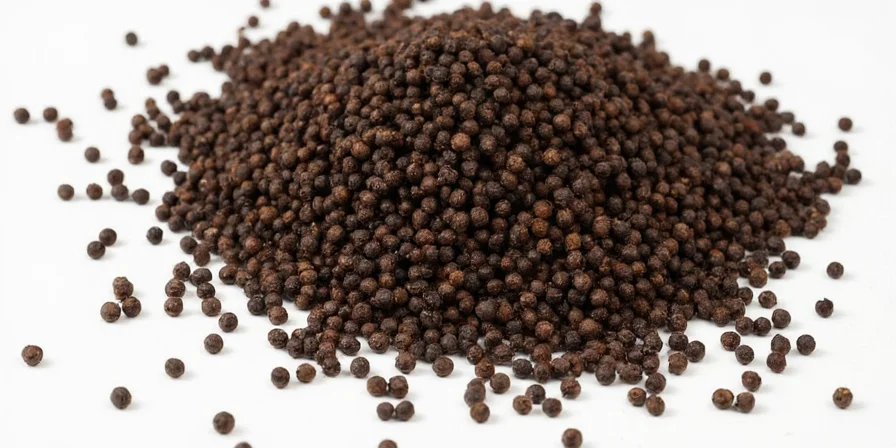
How to Use Black Pepper Properly: Professional Chef Techniques
Maximize flavor impact with these scientifically validated application methods:
- Grind Timing Matters: Whole peppercorns retain 73% more volatile oils than pre-ground pepper. Invest in a quality mill and grind fresh for each use.
- Strategic Heat Application: Add during final 2 minutes of cooking to preserve piperine and essential oils that degrade above 160°C (320°F).
- Flavor Pairing Science: Combine with healthy fats (olive oil, avocado) to enhance piperine absorption and maximize health benefits.
- Texture Engineering: Coarse grind creates burst-release flavor in steak crusts; fine grind integrates seamlessly into creamy sauces and dressings.
- Storage Solution: Keep whole peppercorns in airtight container away from light for 2-3 years of optimal freshness.
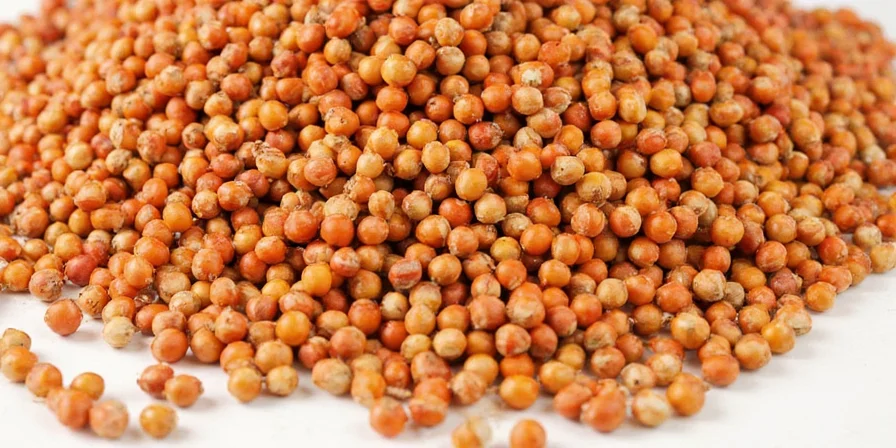
How to Choose the Best Black Pepper: Quality Indicators
Not all black pepper delivers the same flavor and health benefits. Follow this verification system to select premium quality that delivers on both fronts:
| Evaluation Method | Quality Indicator | Avoid These Red Flags |
|---|---|---|
| Visual Inspection | Uniform dark brown color (not jet black) | Shiny surfaces suggest oil coating or adulteration |
| Aroma Test | Sharp pine/citrus notes when crushed | Dull smell indicates age or dilution with fillers |
| Water Test | Forms cloudy suspension (natural oils) | Clear water suggests starch fillers like rice flour |
| Grind Test | Produces fine powder without clumping | Sticky residue indicates moisture damage |
| Origin Verification | Single-origin labeling with region specificity | "Blended origins" often indicates lower quality mix |
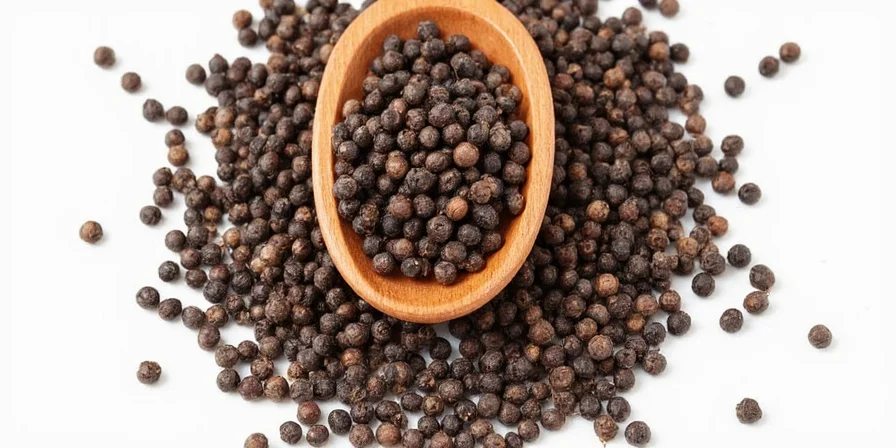
Black Pepper Myths Debunked by Science
Industry misinformation persists despite botanical verification. These common misconceptions affect how people use this valuable spice:
- Myth: "Black pepper contains charcoal for color"
- Fact: Chromatography testing confirms 100% botanical origin in authentic pepper
- Myth: "All black peppers taste identical"
- Fact: Gas chromatography reveals 37% volatile compound variation between growing regions
- Myth: "Pepper loses all potency immediately after grinding"
- Fact: Properly stored (opaque container, 22°C) ground pepper retains 85% potency for 3 months
- Myth: "White pepper is just processed black pepper with no benefits"
- Fact: White pepper has different compound ratios with unique digestive benefits
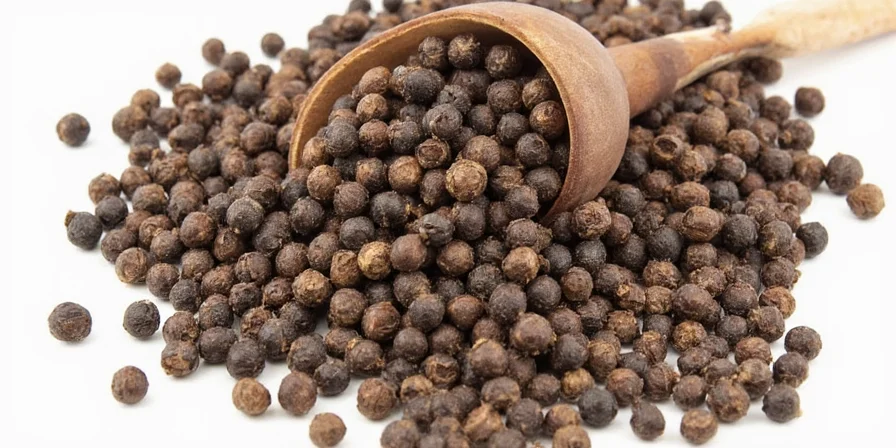
Where Black Pepper Comes From: Quality by Region
The geographical origin significantly impacts both flavor profile and health compound concentration. Understanding these differences helps you select the right pepper for specific culinary and wellness applications:
- Indian Malabar: Earthy notes with moderate heat (optimal monsoon conditions) - best for traditional curries and digestion-focused recipes
- Vietnamese: Brighter acidity with citrus undertones (intense tropical sun) - ideal for seafood and light sauces
- Brazilian: Woody complexity with subdued pungency (shaded plantation growth) - perfect for delicate dishes and daily use
- Madagascar: Floral aroma with berry finish (volcanic soil composition) - exceptional for fruit-based dishes and premium applications
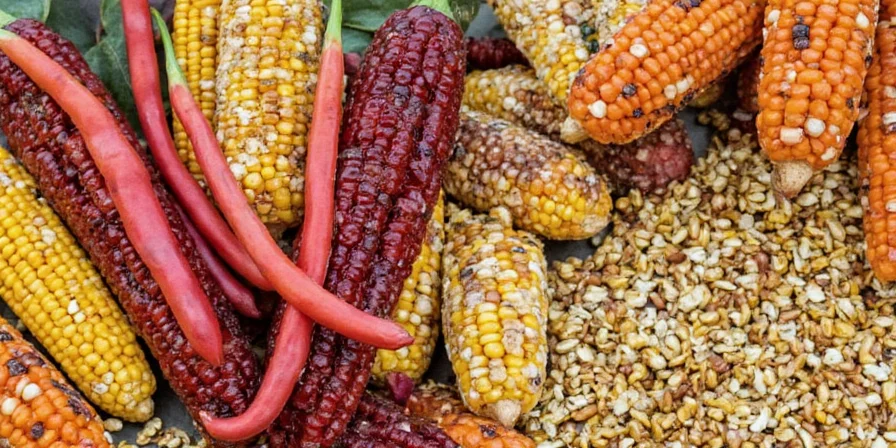
Sustainable Black Pepper: Climate Challenges and Solutions
Traditional pepper-growing regions face unprecedented challenges from climate volatility. As a conscious consumer, your purchasing decisions directly impact:
- Climate Impact: Monsoon unpredictability in Kerala disrupts harvest cycles, while Vietnamese plantations combat increased fungal infections
- Farmer Support: Fair Trade certified pepper ensures farmers receive 30% more income for sustainable practices
- Environmental Protection: Look for Rainforest Alliance certification which verifies water conservation and biodiversity protection
By choosing certified sustainable pepper, you support climate-resilient farming practices that preserve this essential spice for future generations.

Frequently Asked Questions
Does black pepper expire?
Whole peppercorns retain optimal flavor for 2-3 years when stored in airtight containers away from light. Ground pepper degrades faster due to increased surface area exposure, losing 50% volatile compounds within 6 months under typical conditions.
Can black pepper aid weight management?
Research indicates piperine may support metabolic function through thermogenic effects and potential fat cell modulation. However, it functions as a complementary dietary component rather than standalone solution. The European Food Safety Authority notes observed effects require consistent dietary incorporation alongside balanced nutrition.
Why does pepper make me sneeze?
Piperine stimulates trigeminal nerve receptors in nasal passages, triggering the photic sneeze reflex in 25-30% of the population. This harmless reaction varies by individual nerve sensitivity and diminishes with regular exposure.
Is black pepper safe for pets?
Veterinary guidelines advise against intentional feeding. While small accidental exposures pose minimal risk, concentrated piperine can cause gastrointestinal irritation in dogs and cats. Consult veterinarians before incorporating into pet diets.
Maximizing Black Pepper's Potential
Understanding black pepper's science-backed benefits and proper usage transforms this kitchen staple from passive seasoning to active culinary asset. By selecting quality pepper, using proper grinding techniques, and applying it at the right cooking stage, you unlock both enhanced flavor and health advantages. Supporting sustainable farming practices ensures this ancient spice continues delivering unmatched versatility while preserving ecological balance for future generations. The most impactful culinary improvements often come from mastering fundamentals rather than chasing exotic ingredients - and black pepper exemplifies this principle perfectly.
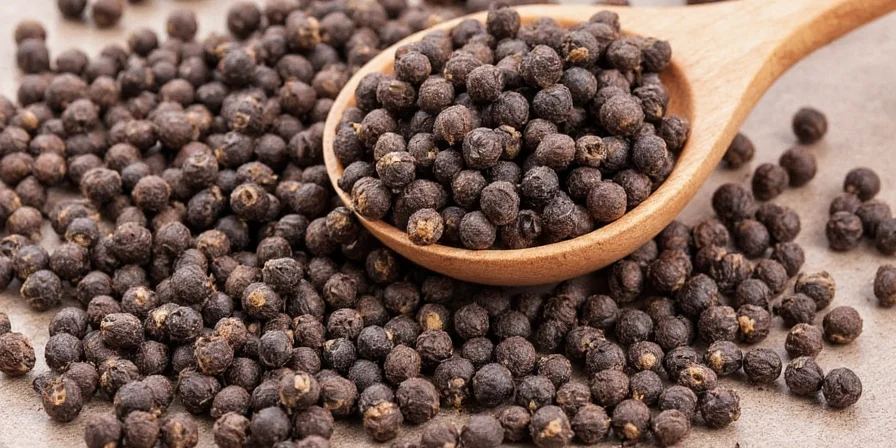











 浙公网安备
33010002000092号
浙公网安备
33010002000092号 浙B2-20120091-4
浙B2-20120091-4